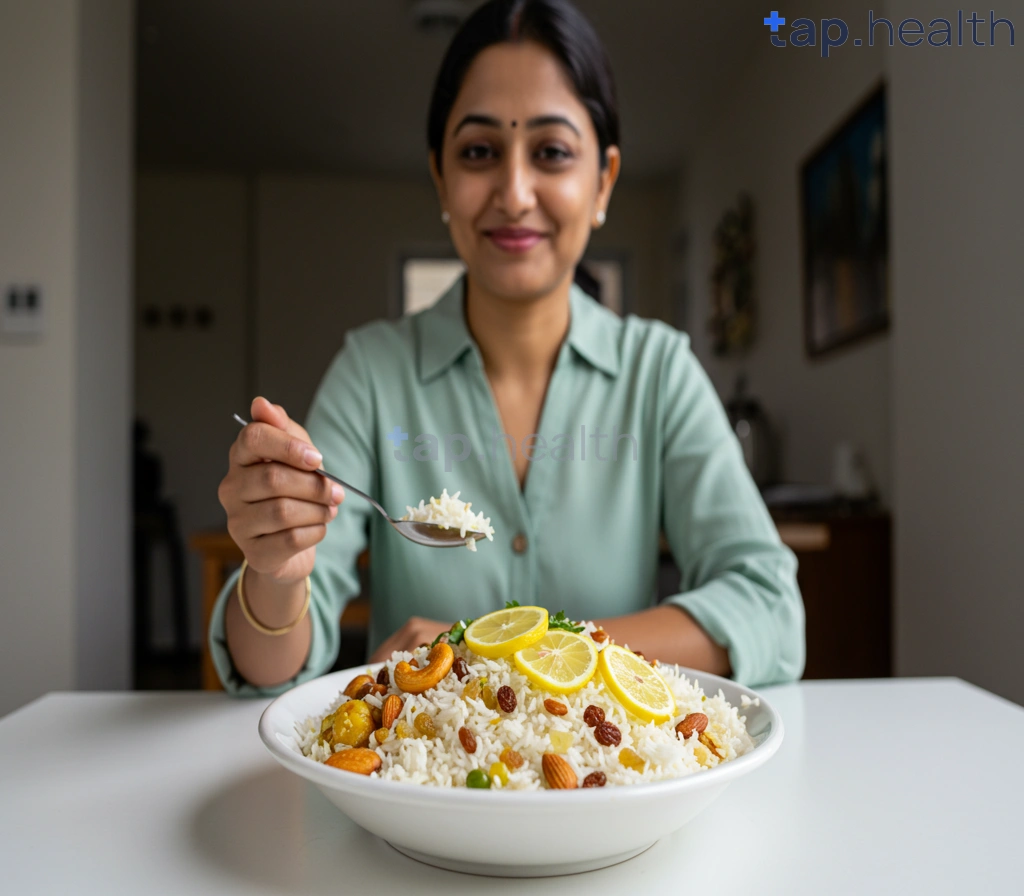Table of Contents
- How Diet Impacts Your Blood Sugar & DNA
- Understanding the Link Between Food and Diabetes
- A Diabetes Study: What Your Diet Does to Your DNA
- Food Choices, Blood Sugar, and Genetic Expression
- Guide to Eating for Healthy Blood Sugar and DNA
- Frequently Asked Questions
- References
Ever wonder how what you eat impacts your health on a deeper level than just weight gain or energy levels? It turns out, the connection is incredibly profound. This blog post explores the fascinating results of a new diabetes study examining How Food Affects Your Blood’s DNA. We’ll delve into the surprising ways dietary choices can influence your genetic expression, particularly concerning diabetes risk. Understanding this relationship is crucial for proactive health management, and this study provides some compelling insights. Let’s uncover the science behind this vital connection!
How Diet Impacts Your Blood Sugar & DNA
Did you know that the food you consume can directly influence your blood sugar levels and even alter your DNA? This isn’t just a theory; studies are increasingly showing a strong link between diet and the risk of developing diabetes, particularly in regions like India and other tropical countries where dietary habits often include high levels of refined carbohydrates and sugary drinks. Research highlights that daily consumption of sugary beverages raises the risk of diabetes by a significant 26%. This alarming statistic underscores the importance of mindful eating.
Understanding the Connection
The impact of diet on blood sugar is relatively straightforward. Sugary foods and drinks cause rapid spikes in blood glucose, forcing your pancreas to work overtime to produce insulin. Over time, this constant strain can lead to insulin resistance, a hallmark of type 2 diabetes. But the relationship extends beyond blood sugar regulation; certain dietary components can also influence gene expression, potentially increasing your susceptibility to developing the disease. For example, chronic inflammation, often linked to diets high in processed foods common in many Indian and tropical cuisines, can affect DNA methylation, altering gene function and contributing to diabetes risk. This complex interplay between diet and genetics highlights the importance of understanding In What Ways Do Genetics Influence Your Nutritional Needs?.
Making Informed Choices for Better Health
In tropical and Indian contexts, where traditional diets often feature rice, sweets, and other high-carbohydrate foods, making conscious changes is crucial. Prioritizing whole grains, fruits, vegetables, and lean proteins, while significantly reducing sugary drinks and processed foods, is essential for maintaining healthy blood sugar levels and minimizing long-term risks. Opting for fresh, locally sourced ingredients is a great way to enhance nutritional value and reduce the risk of diabetes. Small changes, such as swapping sugary beverages for water or herbal teas, can have a considerable impact on your overall health. Regular exercise and routine medical check-ups are also vital components of diabetes prevention and management. By making these changes, you can also see improvements in Weight Loss and Blood Sugar Levels: Simple Connection Explained. By making informed dietary choices, you can actively protect yourself from the debilitating effects of this widespread disease.
Understanding the Link Between Food and Diabetes
Diabetes, a growing concern globally, disproportionately affects the working-age population. Statistics reveal that 61% of those with diabetes are aged between 20-64 years, highlighting the urgent need for proactive management. The International Diabetes Federation emphasizes this concerning trend, particularly relevant in Indian and tropical countries where dietary habits significantly impact diabetes prevalence. This underscores the crucial link between what we eat and our risk of developing this chronic condition. This is further complicated by the strong correlation between diabetes and obesity, as explored in Understanding the Link Between Diabetes and Obesity.
The Impact of Diet on Blood Sugar and DNA
Our food choices directly influence blood sugar levels, which in turn affects our body’s cells, including those involved in DNA replication and repair. High blood sugar, sustained over time, can lead to glycation, a process where sugar molecules attach to proteins and fats, damaging them and affecting DNA integrity. This damage can accelerate aging and increase the risk of diabetic complications. In tropical regions, readily available sugary drinks and refined carbohydrates further exacerbate this risk.
Dietary Strategies for Diabetes Management in Tropical Climates
Many traditional diets in India and other tropical countries are naturally rich in fiber, antioxidants, and beneficial fats. Prioritizing whole grains, legumes, fresh fruits and vegetables, and lean proteins can significantly improve blood sugar control. Limiting processed foods, sugary beverages, and saturated fats is crucial. Furthermore, regular physical activity complements a healthy diet, enhancing insulin sensitivity and mitigating the negative effects of high blood sugar on DNA. It’s also important to be aware of the connection between diabetes and other health conditions, such as The Link Between Diabetes and Fatty Liver.
Taking Control of Your Diabetes Risk
Understanding the impact of diet on your blood’s DNA is the first step towards proactive management. By making informed choices, individuals in India and tropical countries can significantly reduce their diabetes risk. Embrace a balanced, plant-based diet rich in whole foods, and consult a healthcare professional for personalized guidance. Your dietary choices are not just about weight management; they’re about protecting your long-term health and well-being.
A Diabetes Study: What Your Diet Does to Your DNA
The alarming statistic that approximately 35 out of every 10,000 U.S. youths have diagnosed diabetes (CDC Data) underscores the urgent need to understand the link between diet and this devastating disease. This isn’t just about blood sugar levels; it’s about how food impacts your very DNA, influencing your susceptibility to type 2 diabetes and other related health problems. This is particularly relevant in Indian and tropical countries, where dietary habits and genetic predispositions can interact in complex ways.
The Epigenetic Effect of Food
Our diets don’t just provide energy; they influence gene expression through a process called epigenetics. This means that the foods we consume can actually switch genes “on” or “off,” impacting how our bodies function. For example, a diet high in processed foods, sugary drinks, and saturated fats can lead to epigenetic changes that increase inflammation and insulin resistance – key factors in developing type 2 diabetes. Conversely, a diet rich in fruits, vegetables, whole grains, and healthy fats can have a protective epigenetic effect.
Regional Considerations for Diabetes Prevention
In Indian and tropical countries, where traditional diets often feature high carbohydrate intakes, understanding the impact of specific foods on DNA is crucial. Focusing on complex carbohydrates, such as those found in brown rice and lentils, instead of refined sugars, can make a significant difference. Similarly, incorporating spices known for their anti-inflammatory properties, commonly used in these regions, can further mitigate the risk. Regular physical activity, tailored to the climate, complements dietary changes for optimal epigenetic influence. It’s also important to understand how other factors, like stress hormones, can affect diabetes management.
Taking Control of Your Genetic Destiny
While genetics play a role, our dietary choices exert a powerful influence on our genetic expression. By consciously making healthy food choices, we can actively participate in shaping our DNA’s response to diabetes risk factors. This proactive approach is particularly important in regions with high diabetes prevalence, empowering individuals to take control of their health and wellbeing. Start making informed choices today to protect your future. Understanding the relationship between diabetes and other health concerns, such as cancer, is also crucial for preventative care.
Food Choices, Blood Sugar, and Genetic Expression
The Impact of Diet on Blood Sugar and DNA
Did you know that the food you eat can directly influence your blood sugar levels and even affect the expression of your genes? This is particularly relevant in regions like India and other tropical countries where dietary habits significantly impact diabetes prevalence. Maintaining healthy blood sugar levels is crucial, ideally keeping pre-meal levels between 80–130 mg/dL and post-meal levels below 180 mg/dL. Chronic high blood sugar, however, can lead to long-term complications. Research shows a strong correlation between dietary choices and the risk of developing type 2 diabetes, impacting gene expression related to insulin resistance and inflammation.
Understanding the Connection
The foods we consume break down into glucose, affecting blood sugar levels. Consistent high blood sugar can trigger epigenetic changes, altering how genes are expressed. For instance, consuming refined carbohydrates like white rice and sugary drinks common in many Indian and tropical diets can lead to rapid spikes in blood glucose, potentially promoting inflammation and negatively impacting gene expression associated with healthy metabolism. Conversely, diets rich in fiber, found in lentils, vegetables, and whole grains, help regulate blood sugar, minimizing these adverse effects. Learning more about Blood Sugar Levels is crucial for understanding this connection.
Practical Steps for Healthy Blood Sugar
Prioritizing a balanced diet rich in whole grains, fruits, vegetables, and lean proteins is key. This includes incorporating traditional Indian staples like moong dal, rajma, and leafy greens while minimizing processed foods and sugary drinks. Regular exercise and stress management also play a vital role in maintaining healthy blood sugar levels. Consulting a healthcare professional or a registered dietitian for personalized dietary advice tailored to your individual needs and regional context is highly recommended. Taking proactive steps towards managing your diet can significantly reduce your risk of diabetes and improve your overall health and well-being. For practical tips on making lasting changes, check out How to Build Habits That Help Control Blood Sugar Levels.
Guide to Eating for Healthy Blood Sugar and DNA
Maintaining healthy blood sugar levels is crucial, especially in regions like India and tropical countries where certain dietary habits and lifestyle factors can increase the risk of diabetes. Understanding how food impacts your blood’s DNA is key to preventing or managing this condition. Levels less than 140 mg/dL are considered normal; however, consistently high levels, between 140–199 mg/dL, suggest prediabetes, while 200 mg/dL or higher indicates diabetes. For more specific information on what constitutes a normal blood sugar level after eating, check out our article on Normal Blood Sugar Level After Eating: Facts & Tips.
The Impact of Diet on Blood Sugar and DNA Methylation
Your diet directly influences your blood sugar levels and can even affect your DNA through a process called DNA methylation. This process, essentially, modifies your genes’ activity without altering the DNA sequence itself. A diet high in processed foods, sugary drinks, and refined carbohydrates can lead to spikes in blood sugar, increasing inflammation and potentially altering DNA methylation patterns, increasing your risk of developing diabetes and other related health complications. Conversely, a diet rich in whole grains, fruits, vegetables, and lean proteins helps maintain stable blood sugar levels and promotes healthy DNA methylation.
Regional Considerations and Dietary Tips
In Indian and tropical countries, traditional diets often include a variety of nutrient-rich foods. Emphasize whole grains like brown rice and millets over refined grains. Include plenty of fresh fruits and vegetables, particularly those rich in antioxidants. Manage your intake of sugary sweets and fried foods common in many regional cuisines. Regular physical activity, combined with a balanced diet, is crucial for managing blood sugar and overall health. Consider incorporating yoga and other traditional practices to complement your dietary changes. Knowing what to eat before a post-prandial (PP) blood sugar test can also be helpful, so we recommend reading our guide on Preparing for your PP Blood Sugar Test: What to Eat.
Taking Control of Your Health
By making conscious dietary choices, you can significantly influence your blood sugar levels and potentially improve your long-term health outcomes. Regular check-ups and monitoring your blood sugar levels are crucial. Remember, maintaining a healthy lifestyle is an investment in your well-being. Consult with a healthcare professional or a registered dietitian to create a personalized plan tailored to your specific needs and regional dietary habits.
Frequently Asked Questions
Q1. How does diet affect my risk of developing type 2 diabetes?
Dietary choices significantly impact blood sugar levels and gene expression, influencing your risk of type 2 diabetes. Diets high in sugar promote insulin resistance and inflammation, increasing risk. Conversely, diets rich in whole grains, fruits, vegetables, and lean proteins help maintain healthy blood sugar and reduce this risk.
Q2. What specific dietary changes can I make to lower my diabetes risk?
Prioritize complex carbohydrates over refined sugars. Increase your intake of fruits, vegetables, and lean proteins. Incorporate anti-inflammatory spices into your cooking. Limit processed foods and sugary drinks. Regular exercise is also crucial.
Q3. Why are sugary drinks particularly harmful?
Sugary drinks are linked to a 26% increased risk of type 2 diabetes. The high sugar content rapidly elevates blood sugar levels, contributing to insulin resistance and chronic inflammation.
Q4. Are there specific recommendations for people living in tropical countries like India?
In regions like India, where traditional diets may be high in sugar, it’s especially important to focus on the dietary changes mentioned above: limiting refined sugars, choosing complex carbohydrates, and increasing consumption of fruits, vegetables, and lean proteins.
Q5. Should I consult a healthcare professional?
Yes, consulting a healthcare professional is crucial. They can provide personalized dietary advice based on your individual health status, family history, and lifestyle.
References
- Towards Transparent and Accurate Diabetes Prediction Using Machine Learning and Explainable Artificial Intelligence : https://arxiv.org/pdf/2501.18071
- What is Diabetes: https://www.medschool.lsuhsc.edu/genetics/docs/DIABETES.pdf




